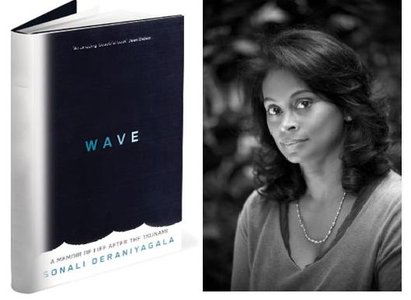Apr
22
Complying
Filed Under Uncategorized | 36 Comments
At the Haganah gym I go to, we’re repeatedly taught about compliance. Compliance is when there’s a gun to the side of your head, or pressed into the middle of your back, and you’re trying to calm the attacker, convince him you’re going to be an easy victim. A compliance statement is something like, “Please don’t hurt me, I have two small children, I’ll do anything you want …” You say your compliance statement with hands open and slightly raised, a surrendering position without bringing your hands so high that they’ll see your next move coming. While you’re mid-sentence — “I’ll do anyyyy–“ — you strike. That part, and the parts that follow, depends on where the gun is, but the ultimate goal is to disarm the motherfucker and if you maybe de-meat his finger in the process, well, he was kinda asking for it, wasn’t he?
(DE-MEAT. I know, right? The first time I heard a trainer use that term I was like OH MY GOD EW HORK BARF and he was like dude, get a grip. And I was like yeah but not with my Skeletor finger right? OH HO HO HO GOOD ONE, ME.)
I really find myself struggling with those compliance statements. It’s a non-negotiable part of the drill, you have to say it out loud to your partner when they’re playing the attacker, and I always feel like the room has melted away and I’m standing on a giant stage, holding a microphone, lit by a single spotlight, while an attentive audience rustles impatiently in their seats. Somewhere in the very back of the theater, someone coughs. My vision narrows, my heart races, and I can’t think of anything I’m supposed to say. “Line,” I want to hiss to a helpful understudy waiting in the wings. I mean, it’s crazy, it’s not like there’s anything HARD about saying “Please don’t hurt me” and yet every single time I have to fight down a case of nervous giggles. “Please don’t haaaaaaaaaa. I’m sorry. I have two small HEEEEEEEEEEEEEE. Oh god. Sorry. I’ll do HARRRRRRRRRRRRRRRR.”
Basically I am a super ridiculous person who has trouble with almost every single thing we do in class, from the groin slapping we practiced yesterday (My brain: OH JESUS I HAVE TO BRIEFLY PUT MY HAND ON THIS GUY’S WEINER AREA AHHHH WEINER MAKES ME THINK OF DE-MEATING AHHHHHH) to this weird finger-under-the-nose technique that is surprisingly painful and wildly effective at lifting someone up and away from you but still short-circuits my brain into a panicked fear that I’ll accidentally slip a finger into someone’s nostril and then I would just have to DIE, like INSTANTLY. There’s even a move called a “bump” that’s designed to push an attacker backwards if they’ve grabbed you around the waist from behind and every time I do it I think of this:
[Image removed because you turkeys kept crying fowl. It’s here, if you’re not too chicken to look.]
ANYWAY. When I was training for the marathon, I remember thinking how spending all that time running past the point where I wanted to stop was good for me in some deep internal way, strengthening non-physical reserves and teaching me, over and over, that I was capable of so much more than I gave myself credit for. Now I have a similar sort of feeling about going to my fight gym — it’s like, being embarrassed isn’t the end of the world. Pushing past all my flinch-y personal space issues is weirdly therapeutic. And above all, it’s okay to completely SUCK at something — in front of other people, even! — and keep coming back, keep trying.
Apr
15
In Wave, Sonali Deraniyagala chronicles the events and aftermath of the Sri Lankan tsunami that killed her parents, her husband, and her two young sons. They had all been staying at a beach hotel together on December 26, 2004, when they were swept up in the water. Only Deraniyagal survived.
It sounds horrifically sad, doesn’t it? It is, of course, but maybe not quite in the way you’d expect. Deraniyagala describes her early months of grief and confusion with such unflinching, precise style it takes you somewhere deep inside her experience. You’re not standing on the outskirts wringing your hands at the unspeakable tragedy that’s occurred, you’re immersed in it, somewhere beyond the tears.
Cheryl Strayed has a great review of Wave in which she writes, I didn’t feel as if I was going to cry while reading “Wave.” I felt as if my heart might stop. Yes.
It seems like the first chapter, focused on the actual events of the tsunami and her surreal rescue, would be the hardest to read, but it’s about halfway through, when Deraniyagala emerges somewhat from the muffling shock and suicidal despair and begins to process her losses, when her writing became so powerful — her guilt, her helpless rage, her raw pain — I had to keep putting the book down. Read a page, put it down. Breathe. Repeat.
I don’t have the ability, really, to tell you about the beauty of how Deraniyagala slowly allows herself to stop repressing the memories of her family and, bit by bit, breathes vivid new life into what was. She does it so exquisitely each page fairly resonates with the galloping footsteps of her children. The sizzle and pop of her husband cooking mustard seeds for dhal. Her old life rendered in fullness, while never stepping back from that yawning abyss of its absence.
Towards the end, she writes,
Seven years on, and their absence has expanded. Just as our life would have in this time, it has swelled. So this is a new sadness, I think. For I want them as they would be now. I want to be in our life. Seven years on, it is distilled, my loss. For I am not whirling any more. I am no longer cradled by shock. And I fear. Is this truth now too potent for me to hold? If I keep it close, will I tumble? At times I don’t know. But I have learned that I can only recover myself when I keep them near.
There is no mawkish sentimentality in Wave, no reminders to hug your children, savor every moment, or embrace the comforting notion of a divine plan. It’s honest and vivid and intimate, a great suffering and a slow healing, somehow a nightmare and a gorgeous dream all at once.
It’s unforgettable. If you get a chance, read it.


